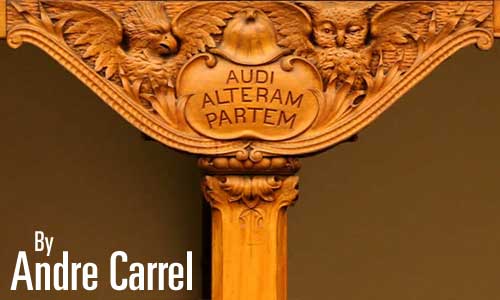The teacher's strike is more about the BC government's contempt for the Constitution than pay or working conditions
On the eve of the teachers’ full-out strike, the government proposed that “if either party is unhappy with the outcome of the government’s appeal of the court case the entire collective agreement can be terminated and a new round of bargaining begins.” To appreciate this proposal I examined the 2014 and 2011 decision of the Supreme Court of British Columbia (98 and 71 pages respectively) and the 2007 Supreme Court of Canada decision (80 pages) concerned with British Columbia’s nurses.
In 2002 the government enacted a new strategy for dealing with employees in education and health services. The nurses opposed that strategy’s principles and went to court. The nurses lost, appealed, and lost again. The dispute ended up at the Supreme Court of Canada. In a precedent-setting decision that court agreed with the nurses. At issue was the Charter of Rights’ fundamental“freedom of thought, belief, opinion and expression, including freedom of the press and other means of communication”. This right means more than the right to sit on a park bench and argue with a neighbour. The Supreme Court ruled that the “freedom of association guaranteed by s. 2(d) of the Charter includes a procedural right to collective bargaining.”
The Supreme Court went on to say that “Recognizing that workers have the right to bargain collectively as part of their freedom to associate reaffirms the value of dignity, personal autonomy, equality and democracy that are inherent in the Charter.” The Supreme Court went on to say that “Association for purposes of collective bargaining has long been recognized as a fundamental Canadian right which predated the Charter.” That settled the matter for the nurses, but not for the teachers.
In the 2011 Supreme Court of British Columbia decision, the court found that “the legislation dealing with teachers was modelled on the same provincial government theory as in Health Services.” In other words, the government had ignored the Supreme Court’s ruling that its public workers’ strategy was unconstitutional and, with Bill 28, proceeded to apply the same strategy to teachers. The court declared that legislation to be invalid and allowed the government twelve months “to address the repercussions of this decision.” The government did not appeal. Instead it waited a year before introducing Bill 22 which was again challenged by the teachers.
In its decision on Bill 22 (released in 2014) the court noted that Bill 22 “repealed the legislation which had been declared unconstitutional in the Bill 28 decision. But at the same time Bill 22 also then immediately re-enacted the previously declared unconstitutional provisions in essentially identical terms.” The court noted that Bill 22 “was unconstitutional and invalid from the date of its enactment.” The court rejected the government’s claim of “good faith consultations” with teachers as the individual who was supposed to be the neutral facilitator in the talks was in fact the same person who had recommended the disputed political strategy to the government. The court noted that there was no precedent “where legislation that was ruled unconstitutional” and was subsequently re-enacted in substantially the same form. In view of the government’s blatant disrespect for the courts, it was ordered to pay the teachers $2 million for damages (yes, taxpayer’s dollars).
If the teachers were to accept the government’s proposal referred to above, they would hand the government the power to impose working conditions, pay, and benefits on teachers. It would establish a precedent for a strategy of using economic pressures to circumvent the constitution and for using its legislative powers with impunity. This dispute is no longer about money, class size and composition. If the government succeeds, the consequences would be severe for all employees, public or private, unionized or not. The government’s actions are of the kind more commonly associated with the Third World’s marginal democracies.
Andre Carrel is a retired city administrator and full-time grandpal.























Comments